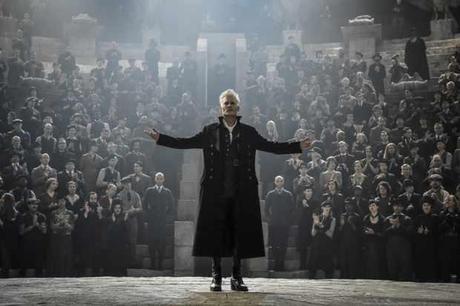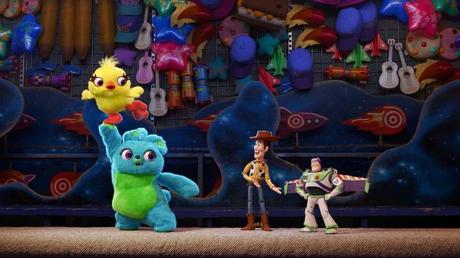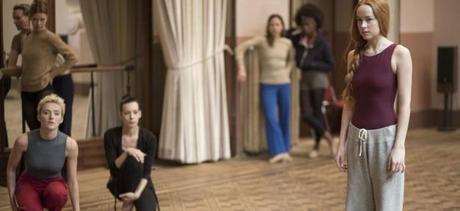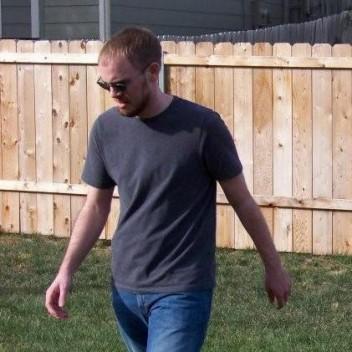So, Fantastic Beasts: The Crimes of J.K....
Sorry. That's not right.
So, Fantastic Beasts: The Needless Brand Extension...
Dammit. I did it again. Again, so sorry. I'll get this right, I swear.
So, Fantastic Beasts: The Crimes of Grindelwald ...
Eh. I just...I can't. I can't do this anymore. J.K. Rowling telling another allegorical story about the rise of fascism? Loved it the first time around when it was called Harry Potter, but now that it's Newt Scamander turn to dance with the devil the magic is in far shorter supply. What's the point of an O.G. Voldemort story with a pre-determined ending (spoiler: Dumbledore's going to win a pretty bitchin' duel before all is said and done)?

Full disclosure: I haven't actually seen Crimes of Grindelwald yet. Same goes for the Harry Potter and the Cursed Child play. The word of mouth on the former is already so toxic ("The New Fantastic Beasts Is So Bad It Actually Makes the Other Books and Movies Worse" headlines Slate's review) as to make me second-guess seeing the film at all, but I probably will take in a screening this weekend, mostly due to completionism but also because the first Fantastic Beasts isn't terrible. It suffers from many of the typical first-movie-in-a-franchise - or, in this case, sub-franchise of planned prequels - problems (too much exposition, slow pacing), but its version of 1920s America is a hoot to look at and there is a rather effective subtext about sexual repression in relation to Colin Farrell and Ezra Miller's characters.
However, as a Harry Potter fan could I have gone the rest of my life without there being any Fantastic Beasts movies whatsoever? Pretty easily, actually. Fantastic Beasts is fanservice personified (the new movie, for example, is apparently one giant origin story for Nagini, Voldermort's snake) and entirely inessential Harry Potter viewing. But, if that was true then The Wizarding World of Harry Potter theme parks wouldn't have been able to add those Fantastic Beasts extensions and merchandise. What self-respecting MBA head of a conglomerate that happens to own a movie studio is going to pass up that kind of multi-tiered profit scheme? Now, along comes Grindelwald to terrible reviews but potentially lucrative box office.

It's just all so...familiar? Predictable? Simply the way things are now? Yes. All of those things. Today it's Fantastic Beasts. A couple of years ago, it was The Hobbit. Tomorrow, it'll be Bumblebee, Breaking Bad and the Rick Grimes-centric Walking Dead movies along with Toy Story 4. Because nothing ever ends anymore. IP, as today and for the foreseeable future, is a good thing in Hollywood, maybe the best of things and no good thing should ever let silly little hindrances like creative exhaustion or audience burnout get in the way of profits.
I'd scream, ala Susan Powter from decades past, "Stop the insanity!" but then some development exec will get the idea to just make a Susan Powter biopic. "A woman in a man's world and she doesn't conform to traditional beauty standards what with the shaved head? I like it, but check her Twitter, Facebook, and Instagram follower count first. We need a built-in audience here, people."
It's enough to drive a pop culture fan crazy. Like, for example, The New York Times critic Amanda Hess, who writes of the apparent death of endings:
Nothing ends anymore, and it's driving me insane. No property may rest: Not Jersey Shore, notnot. The series finales of Roseanne, Murphy Brown and Will & Grac e were not finales after all. The speed with which stories are expanding is beginning to outpace our capacity for language. The term "sequel" is insufficient; now we have "requels" and movies that are more season finale that sequel.
Didn't endings used to mean something? They imbued everything that came before them with significance, and then they gave us the space to reflect on it all. More than that: They made us feel alive. The story ended, but we did not.
She goes on, in far more detail, to extend this cultural trend to the internet as well, pointing to the algorithms and layout tweaks on like Twitter and Instagram as another area in which nothing ever ends. We all live in the endless scroll. As Buzzfeed's Joe Bernstein put it, "One amazing thing about being alive today is the constant electric sensation of bad things coming to a head that never resolves but still maintains its tension over time."
I have no idea what he's talking about. (Leaves to read the latest article about Trump vs. Mueller. Trump said what!?! And Mueller's going to do what next? Oh, some shit's about to go down - except it probably won't.) Oh, actually, spot-on.
That's perhaps a little further astray from what I'm talking about with my Hollywood franchise overkill blues, but it speaks to the larger cultural reality we now call home. Heck, even long-dead pop stars now tour as holograms, like something out of a Philip K. Dick nightmare.
There aren't movies or TV shows anymore; there's content. There aren't any studio heads like the ones who built Hollywood; there are brand managers. It makes for a more streamlined business model, and any content with a built-in audience is going to automatically pull focus and ease investor's worries.

This is not always a bad thing. The Chilling Adventures of Sabrina, for example, has the same core characters and premise as its Melissa Joan Hart-starring predecessor, but it could not be more different in execution. It's a better show. MST3K: The Return is as creatively successful a franchise relaunch as we've ever seen. Luca Guadagnino's Suspiria is an entirely new take on Dario Argento's giallo classic, complimenting the original while also making entirely different creative choices every step of the way. The new She-Ra is reportedly a wildly entertaining reinvention of the old 80s cartoon. I could go on.
It's still exhausting, though, this new era of endless new beginnings for IP we said goodbye to long ago. Like anything else, we learn to sift through the churn, picking the good from the bad. However, if we really want to end the cycle in what little way we can maybe we have to stop giving in to fan service. Maybe I really should sit out Crimes of Grindelwald this weekend, but if I do I won't be able to review it for the site. Would you be cool with that, dear reader?
Let me know in the comments. And what have been some of your favorite recent reboots/revivals/requels? Least favorite? I imagine the new Star Wars movies will have to come up.

Grew up obsessing over movies and TV shows. Worked in a video store. Minored in film at college because my college didn't offer a film major. Worked in academia for a while. Have been freelance writing and running this blog since 2013. View all posts by Kelly Konda

